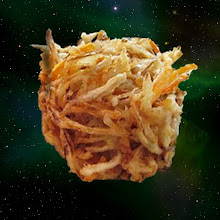To me, this prologue is basically an explanation from an early medieval standpoint of how the Norse mythology came to be. The author starts by explaining why their ancestors were not part of the Judeo-Christian tradition. One phrase that stuck out to me was, "Who then could tell their sons of God's mighty wonders?" He understands that before recent (to him) times, people, at least in that part of the world, were reliant on oral recitation to pass down information and beliefs.
The idea that the earth is alive stands in huge contrast to the idea that became popular during the Enlightenment, that the earth is a machine working according to the "laws of nature." We don't usually think of the earth itself as being a living thing; but at the same time, it is becoming more apparent all the time how interdependent all forms of life are. Certainly the metaphor of the earth as a nourisher still has appeal today.
Snorri gives justification for his theory of the origins of the Norse myths by describing the qualities that should be ascribed to deity: power, strength, benevolence, eternality. Then he shows how the human people who came to be known as Thor, Odin, and others rose to such high regard by their feats of strength, bringing prosperity their region, coming from a foreign place, and ushering in a new era in the history of the people.
Subscribe to:
Post Comments (Atom)




1 comment:
Interesting observation, Alexandra: "in huge contrast to the idea that became popular during the Enlightenment, that the earth is a machine." Even in Snorri's fairly terse commentary in the Prologue, we have the sense that the world is open and mysterious.
ka
Post a Comment